A small solution for pollution

Did you already spot our pencil case? We’re actually quite proud of it. Proud of the looks of the pencil case, and by that we obviously mean the awesome jeans fabric and fabulous print, but moreover the beautiful story that lies behind the production of this product. You’ll read all about it in this blog.
A great kick-off
It would be ideal if you could just carry around your pencils and accessories in something which is a storage box at the same time? That’s what we thought. That’s how the idea of a real Correctbook pencil case was born. But the DNA of this pencil case should totally match the other Correctbook products plus our mission and vision. Hence, we investigated the options for a product that is as environmentally friendly as possible. In short, that’s how we ended up at Africa Collect Textiles.
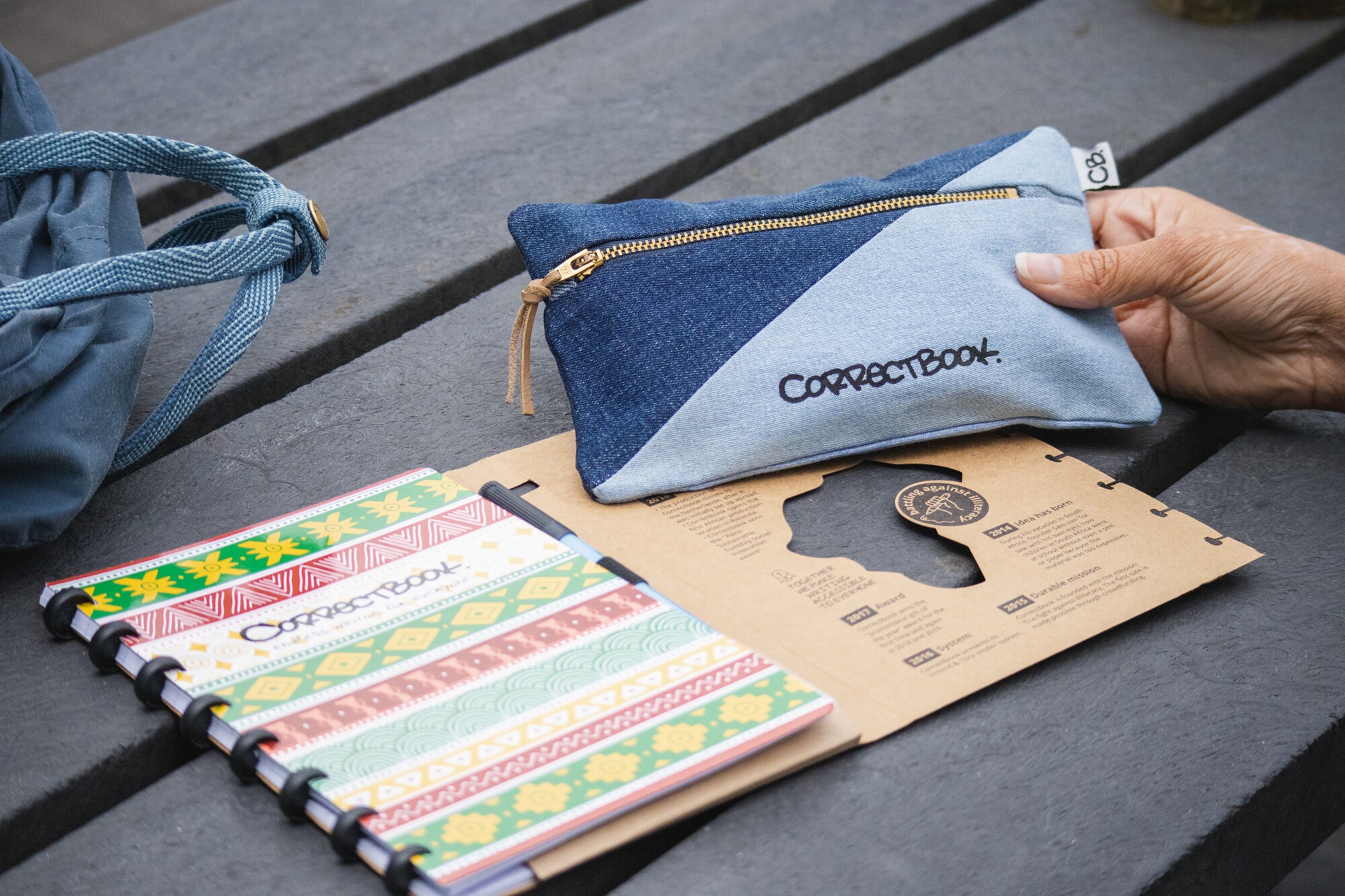

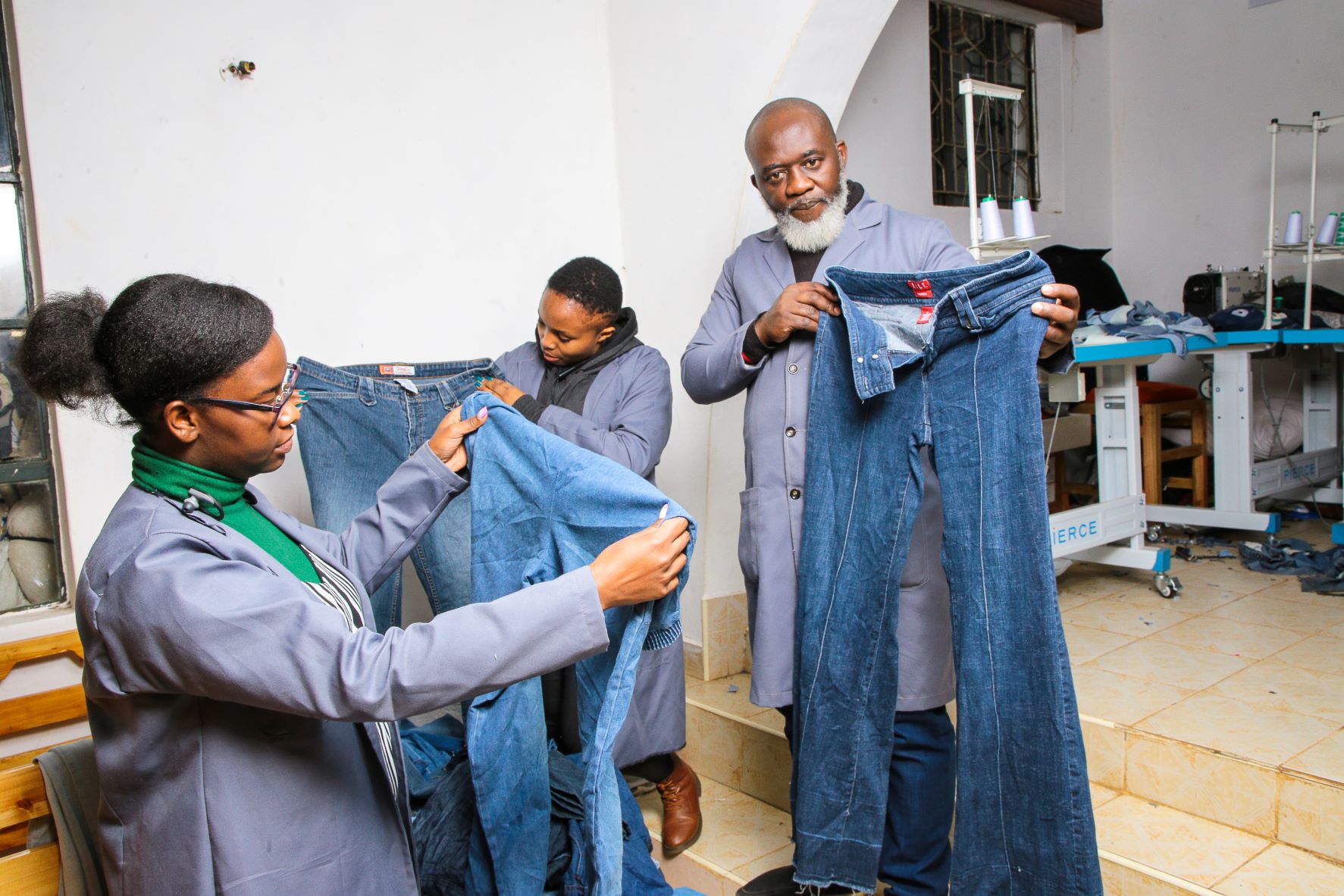

Who is ACT?
But who is this organisation? Africa Collect Textiles, in short ACT, collects old clothes and makes these into new products to keep these away from the landfills and to generate new jobs, including the amazing pencil case. They also donate 10 Kenyan shilling (about 8 eurocents) to a foster home for every kilogram used textile that they recycle.
Positive environmental impact
ACT started with recycling textile from the landfills. But after some time, they thought; ‘this problem should be tackled way earlier in the chain’, which marked the start of the drop-off points. More than 40 drop-off points have been realised in Nairobi and Lagos. In this way ACT can collect worn textile and footwear dry and clean. They also offer a pick-up service for big volumes of clothing, uniforms and cutting waste. And they often buy unsaleable jeans at the biggest second-hand clothing market of East-Africa; Gikomba. These jeans are transported from ‘the Global North’ to Africa, but aren’t sold due to defects, divergent sizes and materials and normally end up at the landfills or worse, in the river behind the market.
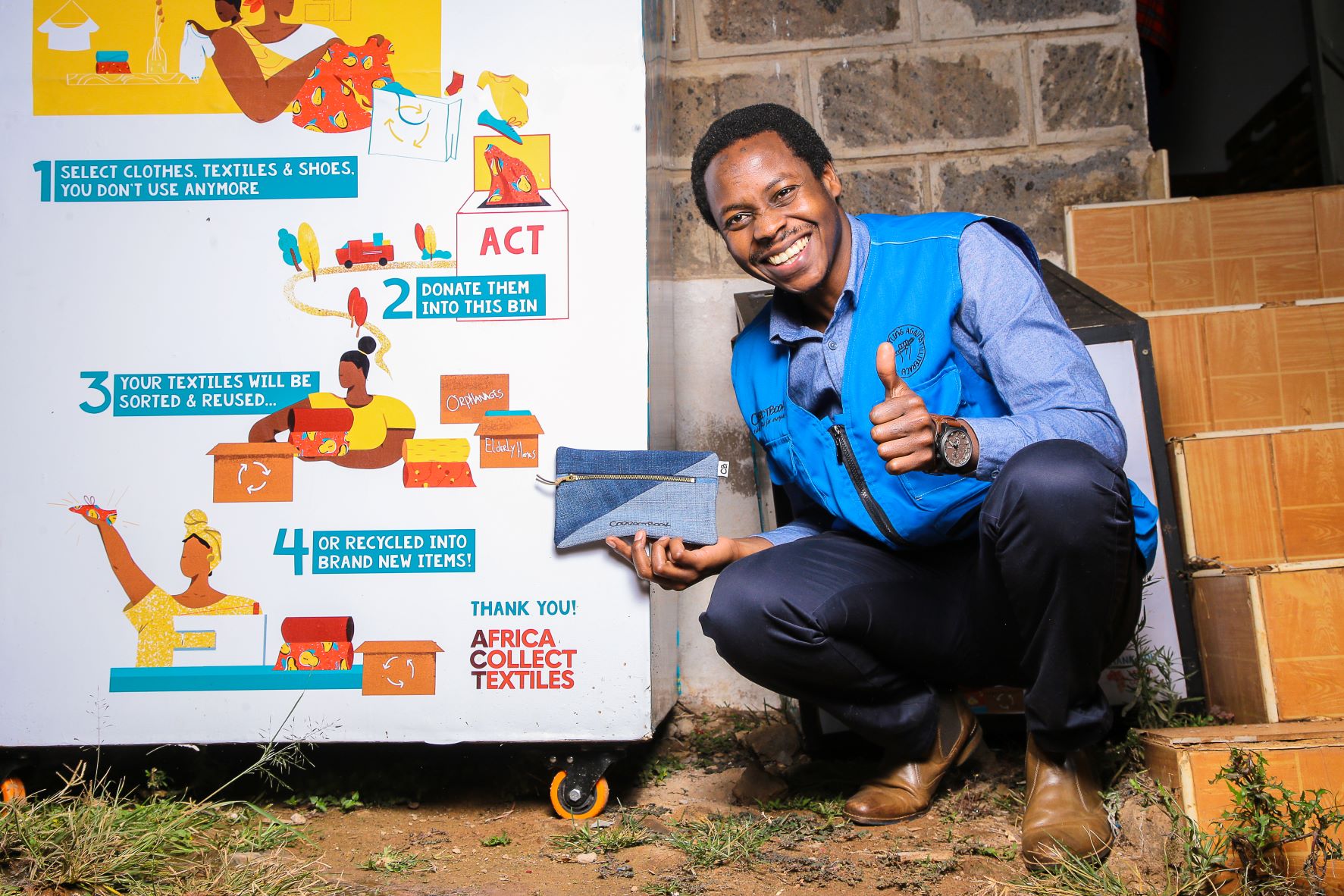

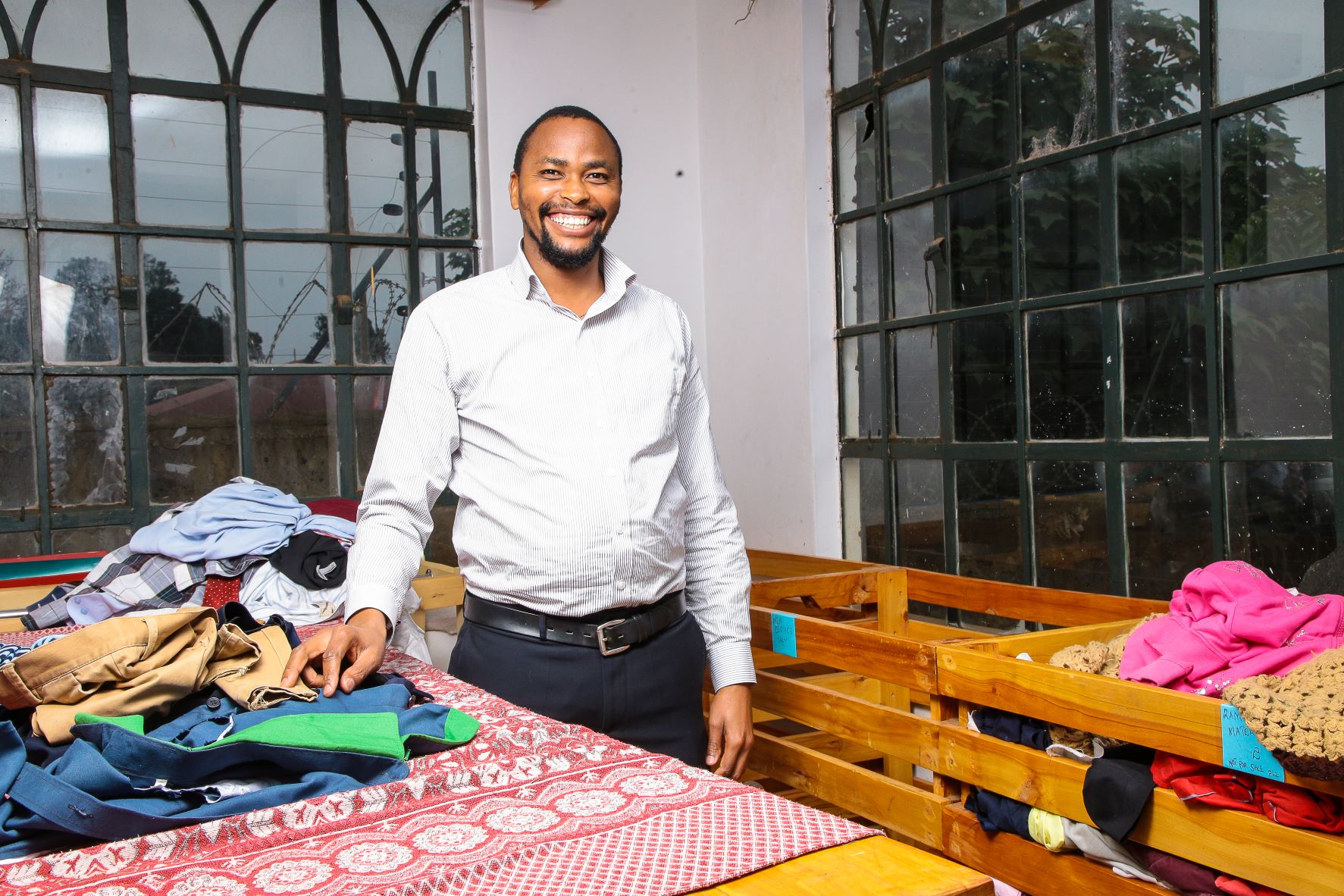

Sorting process & denim fabric
The collected items are sorted by wearability, type of material and colour. The clothing which still can be worn is donated to the foster home or is redistributed within vulnerable communities. The materials to be recycled are used to make various products. In the case of Correctbook's pencil case, different shades of denim are used. The denim fabric makes the pouch more flexible, making it easy to stuff everything in. You can store all your Correctbook accessories; stuff it with the cleaning spray, your refill station, some sponges, and a dose of pens.
Zip it open
The zipper? ACT cuts them out of the jeans and uniforms they collect. Only when there aren’t enough zippers, ACT buys zippers from Gikomba, which have already been cut from other garments that aren’t marketable. And the zipper has a zipper cord as well. And yes, that too is made from recycled material, namely from old bag leather.


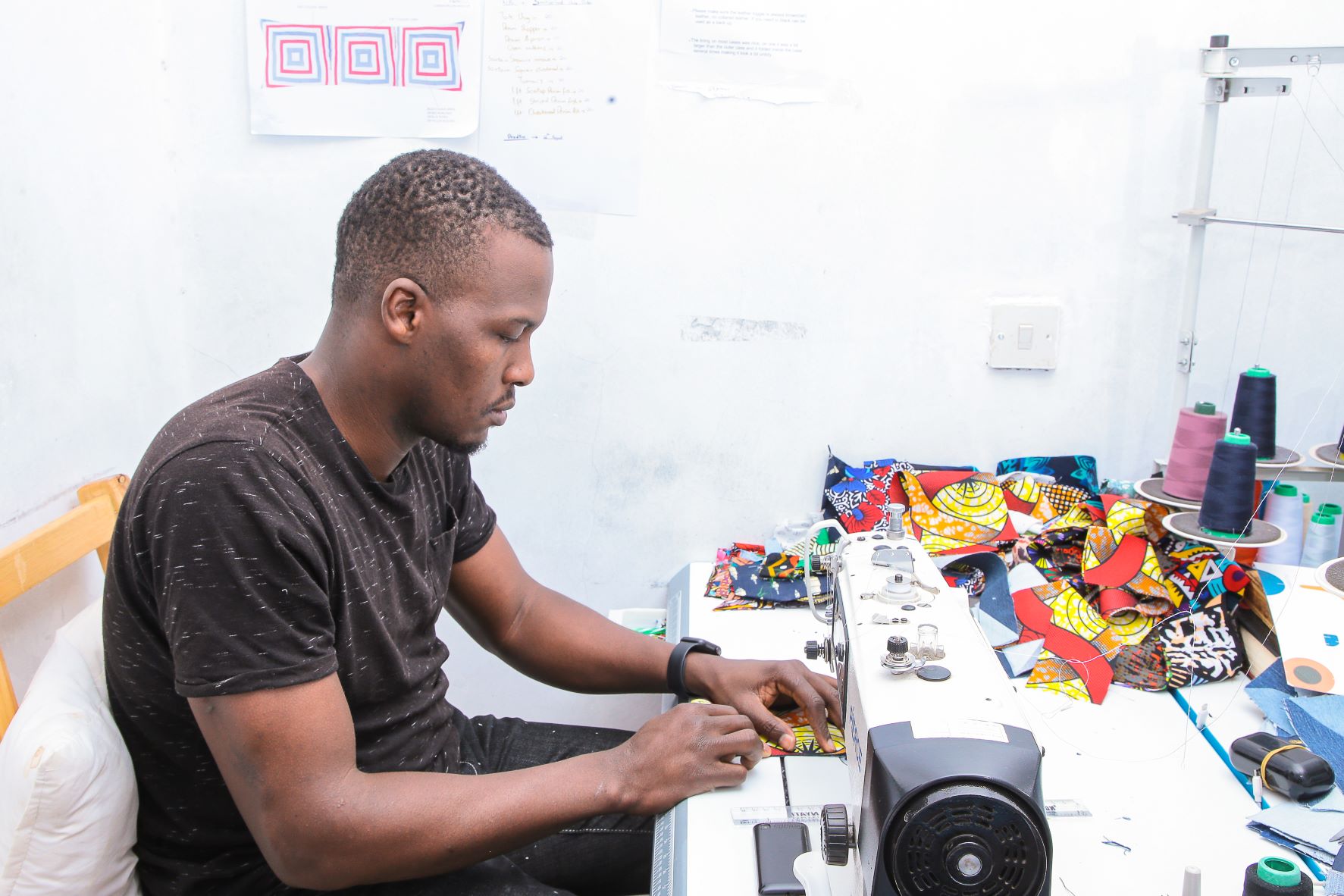

It’s the inside that matters
The liners of the Correctbook pencil cases are made from remnants of the fashion and furniture industry. That is why all cases are unique and each piece of fabric has a different history. Fantastic, isn't it? This beautiful inside is called 'Kitenge', a colourful printed sturdy cotton fabric, which has its origin in Kitengeola, Mombasa in Kenya, and Tanzania, but is now also popular in just about all Sub-Saharan Africa.
Doubling the impact
We are extremely proud of this collab. Why? ‘Cause with this pencil case we make an impact in two areas, just like we do with the sale of the Correctbook notebook. As mentioned before, with the sale of the Correctbook pencil case, we contribute to a cleaner environment, but thanks to the production of the Correctbook pencil case, ACT has also been able to hire three new employees and purchase three additional sewing machines. Incredible news if you ask us!
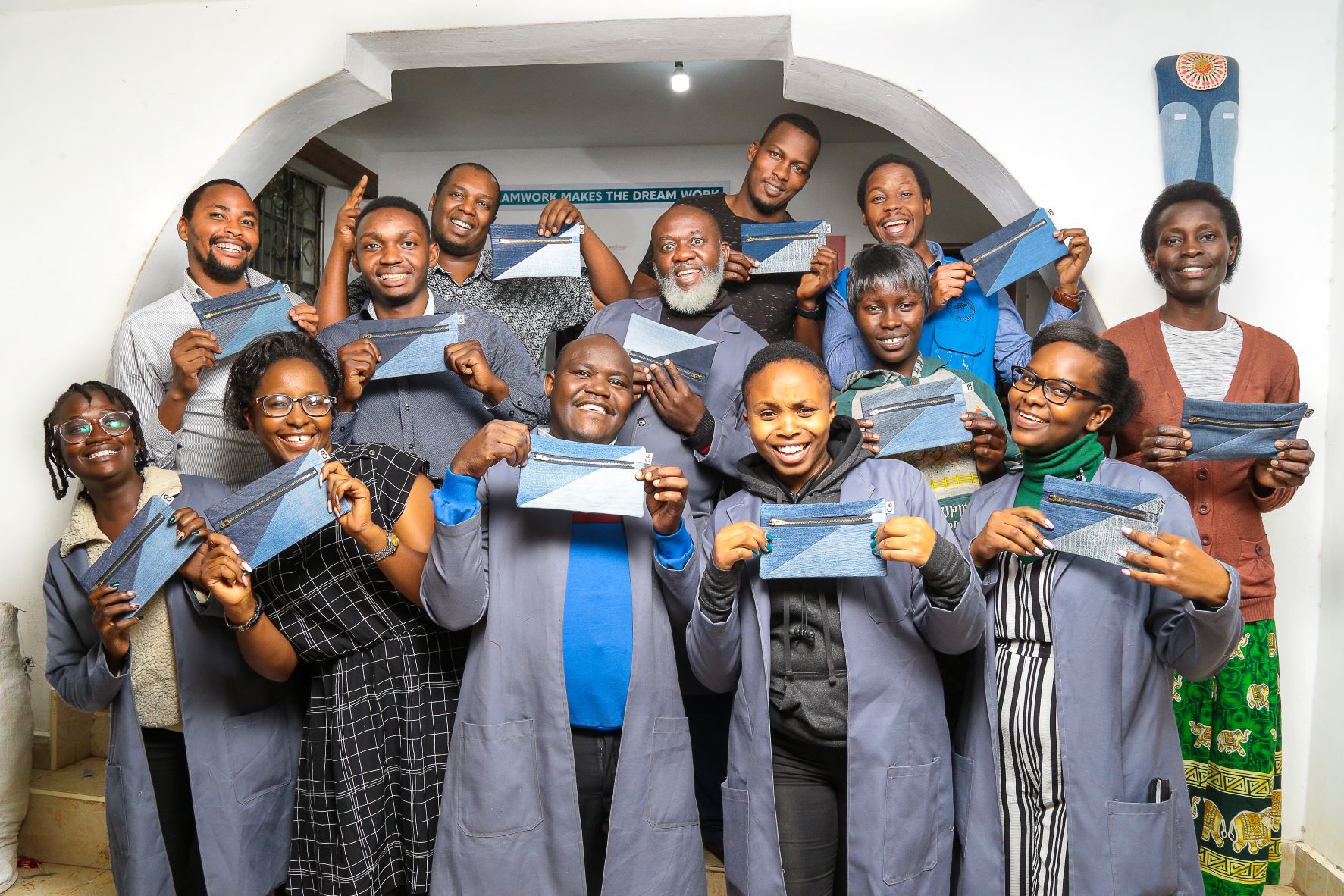

Visually set? Watch the video of our visit to the production location of the sustainable Correctbook pencil case here.



